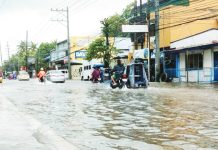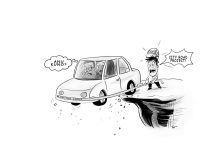
IN WESTERN Visayas, the Department of Transportation’s (DOTr) move to impose quarterly mandatory drug testing for public utility vehicle (PUV) drivers has been met with cautious support from transport groups. After a string of tragic road crashes claimed innocent lives — including children — the DOTr under Secretary Vince Dizon appears determined to implement sweeping reforms to restore public confidence in road safety. But the question must be asked: will this be different from the many past announcements that faded into inaction?
Transport leaders in Iloilo are not new to grand declarations. They remember when drug testing was once required for driver’s license renewals — a policy that quietly vanished due to poor monitoring and lax enforcement. They’ve seen safety checks, speed limiter regulations, and driving hour limits all introduced with fanfare, only to be ignored when the headlines died down.
In this context, skepticism is not cynicism; it is lived experience.
Leaders like Raymundo Parcon of the Western Visayas Transport Cooperative (WVTC) and Perfecto Yap of the Association of Taxi Operators in Panay rightly underscore a key concern: sustainability. Without clear implementation guidelines, monitoring mechanisms, and logistical support, the quarterly drug testing initiative is at risk of becoming yet another hollow policy — announced in crisis, abandoned in routine.
Consider the case of WVTC, which operates over 300 modern jeepneys in Iloilo City. While the cooperative has conducted initial drug testing during hiring, it lacked the resources to follow through with regular checks. Only now, with heightened attention and assistance from the Philippine Drug Enforcement Agency (PDEA) and Land Transportation Office (LTO), has enforcement been reinvigorated — leading even to the arrest of a driver in a buy-bust operation. This reinforces the idea that follow-through, not mere policy pronouncements, delivers results.
It is encouraging that the DOTr acknowledges the failures of the past. Secretary Dizon’s admission that “the old system failed” is a step in the right direction. But admission alone will not fix a broken system. What is needed now is action — consistent, monitored, well-funded action. This means allocating financial and logistical support to transport cooperatives burdened with the responsibility of compliance. It means restoring meaningful inter-agency coordination with the PDEA, LTO, Land Transportation Franchising and Regulatory Board, and local governments. And crucially, it means holding the agencies themselves accountable when enforcement lapses.
More than having rules, road safety is about the will to enforce them, the systems to sustain them, and the commitment to protect lives long after the headlines have moved on. Western Visayas has seen too many reforms that started with urgency and ended with neglect. If this administration is serious about change, then this time — let it be different. Lives depend on it.







